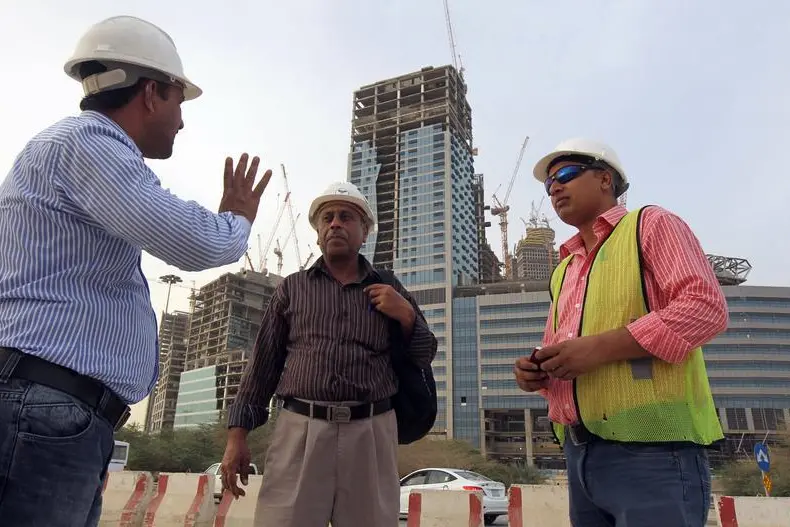PHOTO
My first exposure to business was during my high school years in the mid-1970s. I used to spend a few hours every day at my family’s water fountains and landscaping contracting business. The building and construction sector has long been considered the second largest non-oil sector in Saudi Arabia.
Signs of weakness persisted in the Saudi construction industry in the past years, but the sector has a robust project pipeline from 2019 and beyond.
Saudi Arabia’s construction industry was severely hit by cutbacks in capital spending between 2015 and 2016, following the crash in oil prices. As a result, several construction projects were canceled or postponed, in conjunction with delayed payments to contractors that led to large-scale layoffs.
More than two years after Saudi Arabia unveiled economic reforms under Vision 2030, the Kingdom appears to be making considerable headway in planning and launching key projects that will give a much-needed boost to its construction sector.
The Kingdom’s aim to attract foreign and private investment has led to the announcement of large-scale infrastructure projects across the health care, transportation, tourism and renewable energy sectors. These announcements have aroused wide interest and have already had a positive knock-on effect on the country’s construction industry.
According to Project Intelligence Platform Ventures ONSITE, as of September 2018, the total value of Saudi construction-related projects, comprising buildings, industry, power and water, oil and gas, and infrastructure, is estimated to be $1.4 trillion. Meanwhile, new Saudi construction contractor awards are estimated to grow to $44.1 billion in 2019, compared to 2018’s value of $26.3 billion.
The 2019 budget prioritizes expenditure on capital investments estimated at SR246 billion ($66 billion), an increase of 19.9 percent from the previous year. Some of the construction targets announced in the 2019 budget are constructing 355 new school buildings in 2019, building 23,000 housing units using modern construction techniques, and finishing 100 housing projects by end of 2019.
Ambitious government targets, a fast-growing population and a shift to privatization are creating new growth potential in the expanding construction market. Objectives outlined in Vision 2030 put a major emphasis on public-private partnerships, joint ventures and the privatization of government entities. Such measures will be critical to ensuring the Kingdom achieves its goal of increasing the private sector contribution to the country’s gross domestic product (GDP) from 40 percent to 65 percent by 2030.
The Saudi Contractors Authority, a newly formed government authority, is responsible for regulating the Kingdom’s contractor industry and increasing mergers and acquisitions in a market where construction projects are expected to surge in the coming years.
The outlook for the construction market in Saudi has definitely improved, and I believe that opportunities do exist when you look at the number of projects at the tendering stage.
The bullish forecast is underpinned by the continued increase in population, ongoing investments in infrastructure and energy and upcoming mega events.
Basil M.K. Al-Ghalayini is the Chairman and CEO of BMG Financial Group.
Arab News: Copyright: Arab News © 2017 All rights reserved. Provided by SyndiGate Media Inc. ( www.Syndigate.info ).
Disclaimer: The content of this article is syndicated or provided to this website from an external third party provider. We are not responsible for, and do not control, such external websites, entities, applications or media publishers. The body of the text is provided on an “as is” and “as available” basis and has not been edited in any way. Neither we nor our affiliates guarantee the accuracy of or endorse the views or opinions expressed in this article. Read our full disclaimer policy here.





















